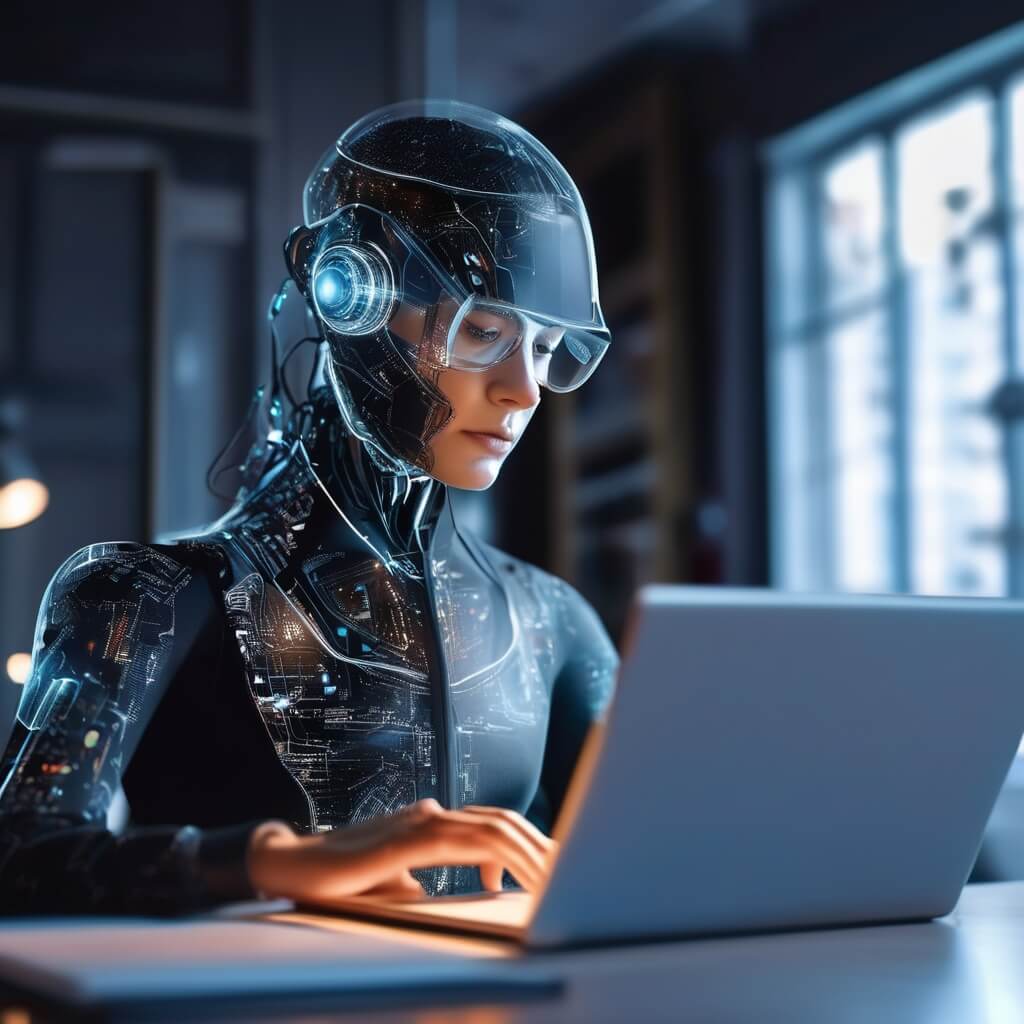Navigating Job Displacement AI Influence on Work
Written by G.Richard on March 5, 2024

In today’s rapidly evolving world, the influence of Artificial Intelligence (AI) on employment is undeniable. As AI technologies continue to advance, they reshape industries, creating both opportunities and challenges for the workforce. This article delves into the nuanced impact of AI on employment, exploring how individuals and organizations can navigate the changing landscape.
Understanding AI’s Influence
Artificial Intelligence has become an integral part of the modern workplace, revolutionizing tasks and processes across various sectors. From automation to machine learning, AI contributes to efficiency and innovation. However, this progress is not without its consequences, particularly in terms of job displacement and the evolving nature of work.
The Positive Side of AI
While concerns about job displacement are valid, it’s crucial to recognize the positive aspects of AI. The technology creates new job sectors, demanding skills that were previously nonexistent. Professionals willing to adapt and upskill can find exciting opportunities in emerging fields such as AI development, data science, and cybersecurity.
Challenges of AI in Employment
Acknowledging the challenges is the first step in addressing them. Job displacement due to automation is a reality, impacting traditional job roles. To stay relevant, employees need to embrace continuous learning and upskilling, ensuring they possess the skills demanded in the AI-driven job market.
Navigating Job Displacement
For those facing AI-induced job loss, navigating the transition requires strategic planning. Reskilling programs and adapting to the changing job landscape are essential. Embracing a growth mindset and seeking opportunities in expanding industries can turn job displacement into a stepping stone towards a more fulfilling career.
AI and Job Market Trends
Understanding current and future job market trends influenced by AI is crucial for individuals planning their careers. Identifying in-demand skills and industries can guide professionals in making informed decisions about their career paths. Flexibility and adaptability are key in a dynamic job market shaped by technological advancements.
Case Studies
Real-world examples demonstrate that successful adaptation to AI in the workplace is possible. Companies and individuals who embraced AI technologies thrived, proving that with the right mindset and preparation, one can navigate the challenges posed by AI and emerge stronger in the professional landscape.
The Role of Education in AI Age
To prepare the workforce for a technology-driven future, education systems must evolve. Incorporating AI education into traditional curricula ensures that students graduate with the skills required in the modern job market. Lifelong learning becomes a necessity, and educational institutions play a pivotal role in facilitating this process.
Government Initiatives and Policies
Governments play a crucial role in mitigating the impact of AI on employment. Implementing policies that support affected workers, encourage upskilling, and promote economic stability is essential. Collaboration between the public and private sectors can lead to a more resilient and adaptable workforce.
Ethical Considerations
As AI becomes ingrained in employment processes, ethical considerations come to the forefront. Ensuring fair treatment and addressing biases in AI systems is imperative. Ethical AI practices contribute to a more inclusive and just work environment.
Future Outlook
Predicting the trajectory of AI’s impact on employment is complex, but it’s clear that the integration of AI will continue to shape the job market. Advancements in technology will present new challenges and opportunities, making adaptability and continuous learning essential for individuals and organizations alike.
Conclusion
In conclusion, the influence of AI on employment is multifaceted. While challenges exist, the positive aspects, including new opportunities and job sectors, should not be overlooked. Navigating job displacement requires a proactive approach, with a focus on reskilling and adapting to the evolving job market. The future promises both uncertainties and possibilities, making it crucial for individuals and societies to stay informed and prepared.
FAQs
-
How can individuals prepare for job displacement due to AI?
- Embrace continuous learning and upskilling to stay relevant in the evolving job market.
-
What are the ethical considerations in AI employment?
- Ensuring fair treatment and addressing biases in AI systems to create a just work environment.
-
How can governments support workers affected by AI-induced job loss?
- Implementing policies that encourage upskilling, economic stability, and collaboration between sectors.
-
What role does education play in preparing for AI’s impact on employment?
- Education should evolve to incorporate AI-related skills, ensuring graduates are equipped for the modern job market.
-
How can companies and individuals thrive in the AI era?
- Embrace AI technologies, learn from successful case studies, and maintain a growth mindset.